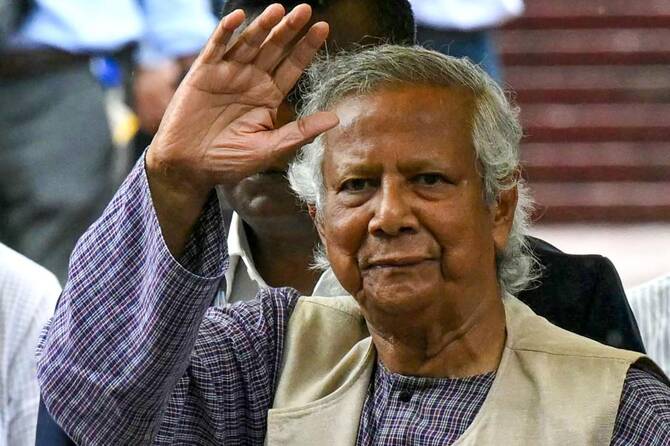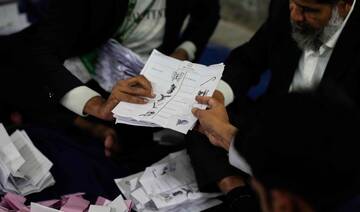Federica Mogherini has overseen EU foreign and security policy since November 2014. With her term coming to an end in 2019, Mark Leonard of the European Council on Foreign Relations, a pan-European think tank, interviewed Mogherini about the state of European security and the future of the international order, arms control and migration, among other issues.
Leonard (ML) So far, the EU has maintained its unity over key issues, such as Brexit and post-Crimea sanctions on Russia. Is this unity likely to hold in 2019, particularly given the looming EU parliamentary elections and changes at the top of the European Commission and European Council?
Mogherini (FM) The unity of our union is much stronger than is often perceived. What I see in my daily work is an EU that makes decisions jointly, implements them together and — especially in the field of foreign and security policy — acts as one.
Many complain about a lack of unity, but my impression is that these complaints derive more from a comfortable cliche that is repeated on the basis of past experiences rather than from a realistic reflection on the situation today.
We need to define what we mean by unity. It does not mean uniformity. We number 28 — soon 27 — which is still a lot. With 500 million people, the EU is the largest integration project ever realized.
It is the biggest market in the world and the second-largest economy. It comprises many different cultures, languages and politics. History and geography have given us different backgrounds. It is only natural that this translates into different views, opinions and voices, even within each of our democratic societies.
I have always refused to use the expression: “The EU must sing with one voice.” We need to use all the different voices we have, because our plurality is our point of strength. But we need to sing the same song, in a coordinated manner, like a choir. And in my daily work, I see unity of purpose, common decisions and coordinated action happening. I do not see this trend being challenged.
ML You have called for Europe to defend its sovereignty by, for example, creating new structures that would allow it to continue to adhere to the Joint Comprehensive Plan of Action (JCPOA) with Iran. Will these structures work, and could the special-purpose vehicle to maintain trade with Iran be used to counter other US sanctions?
FM We are working, as a union of 28 member states and with the rest of the international community, to preserve a nuclear agreement that has so far been implemented in full, as certified by the International Atomic Energy Agency (IAEA) in 13 consecutive reports. We do this because of our collective security: We do not want to see Iran developing a nuclear weapon, and the JCPOA is delivering precisely on that purpose.
I often hear that, on this issue, Europe is motivated mainly by economic or trade considerations. That is not the case. We do this to prevent a nuclear non-proliferation agreement that is working from being dismantled, and to prevent a major security crisis in the Middle East.
ML Why has Europe’s weight in its neighborhood decreased, especially when it comes to shaping events in Turkey, Libya and Syria? Is this an indication that Europe will not be one of the great powers of the 21st century?
FM Our destiny is in our own hands. If we want to play a decisive role, not only in our region but also globally, we have all the right instruments to do so, and we have the weight to do so. This is also what our partners around the world expect from us, particularly in these difficult times. To play such a role, Europeans need to realize how big and powerful they are when they act together as a union, and focus more on the responsibility we can exercise on the global scene if we resist the temptation of inward-looking policies — or rather, politics.
Our greatest enemy is a lack of trust in the means at our disposal. The EU has unparalleled “soft” power — in economic, diplomatic and cultural terms — and we are increasingly active as a global security provider, building our “hard” power as never before. In Syria and Libya, we are not a military player, and I am proud of this. Violence has brought more violence, while we have always worked for peaceful and negotiated solutions.
Does this mean we are powerless? Quite the contrary. At the UN General Assembly this year, more than 50 countries and organizations took part in the discussion we initiated on Syria to support the difficult work the UN is doing there. Everyone understands that the EU’s role in Syria and Libya is unique and irreplaceable.
ML What impact will Brexit have on the EU’s security strategy? Will it help forge a stronger consensus?
FM I have no doubt that our future is one of close partnership and cooperation. If you look at what has happened since the Brexit referendum in 2016, we are still making unanimous decisions on foreign, security and defense policies.
We reacted as one to the nerve-agent attack in Salisbury, England, earlier this year. We continue to work together when it comes to preserving the Iran nuclear deal. And we are pursuing shared objectives in Ukraine, Syria, Afghanistan, Myanmar
and elsewhere.
In the coming months, I will present a proposal for a new way of collaborating with non-EU countries and international organizations that are involved in EU civilian and military operations, or that are otherwise associated with our security and defense policies.
This will also be an essential part of our future relationship with the UK. We will seek ways for non-EU countries to participate in defense projects launched under the Permanent Structured Cooperation framework.
ML What do you believe foreign policy can and should do to fight populism?
FM I do not like the expression “populism.” I believe a lot of people have lost trust in institutions — all of them. But in most European countries, the EU is more trusted than national institutions.
The reaction coming from some political forces is to shift the blame and find a scapegoat. Governments come to Brussels, make decisions by unanimity, then blame the results on the EU. But the union is what we make of it. We have a collective responsibility to make it work. It is a reflection of our own collective political will.
In these past few years, our foreign policy has advanced and protected Europeans’ interests and values in a way that no member state could have achieved alone. In today’s world, even the bigger member states are small, such that national sovereignty can be effectively exercised only through the EU. We show this every day in our foreign policy. We are more effective at negotiating trade deals as the world’s largest market than as 28 separate countries.
ML If there is a populist surge in the upcoming European Parliament elections, what lessons should Brussels take from it, and what new course would you advocate?
FM Whatever the result of the election, the lessons will have to be taken not so much in Brussels but everywhere around the union, and most of all in member states’ capitals. EU policies and actions are defined through our collective work, which is the result of our political will. If it works, it is a collective success for all of us. If it fails, it is a collective responsibility and a problem for all. No one is excluded.
I believe that Europeans need their union, and need to change some of the policies that the EU has put in place. This is something we have begun to do in recent years, deepening European integration on security and defense, establishing a strong and united external policy to govern migration flows, and launching the largest ever investment plan for Europe and Africa.
Some want to change EU policies to improve them — even radically — but others just want to destroy the union. We have to be very careful because in times of frustration, destruction can sound fascinating for many. Yet the secret of change is to focus not on destroying the old but on building the new. I hope this will be possible in 2019.
ML Do recent developments in the EU’s external approach to migration in places such as Africa and the Middle East signal a move away from emergency responses toward long-term solutions?
FM Not just recent developments. This has been the goal of our external action on migration since the very beginning. Let me remind you of the situation three years ago: Hundreds of people were dying almost every day in the Mediterranean and in the North African desert. Until then, the EU had been indifferent to a phenomenon that it considered to be outside its competence and under the exclusive purview of individual member states.
This has changed, finally. We had to create an emergency response to end the carnage, and we did it with Operation Sophia at sea and the Emergency Trust Fund to finance our work with Africa.
At the same time, we started to work on a better system to manage migration flows and address their long-term causes. We started to train local security forces; we worked on voluntary returns for migrants, with the opportunity to start a new life; and we established our investment plan for Africa and Europe’s neighborhood.















